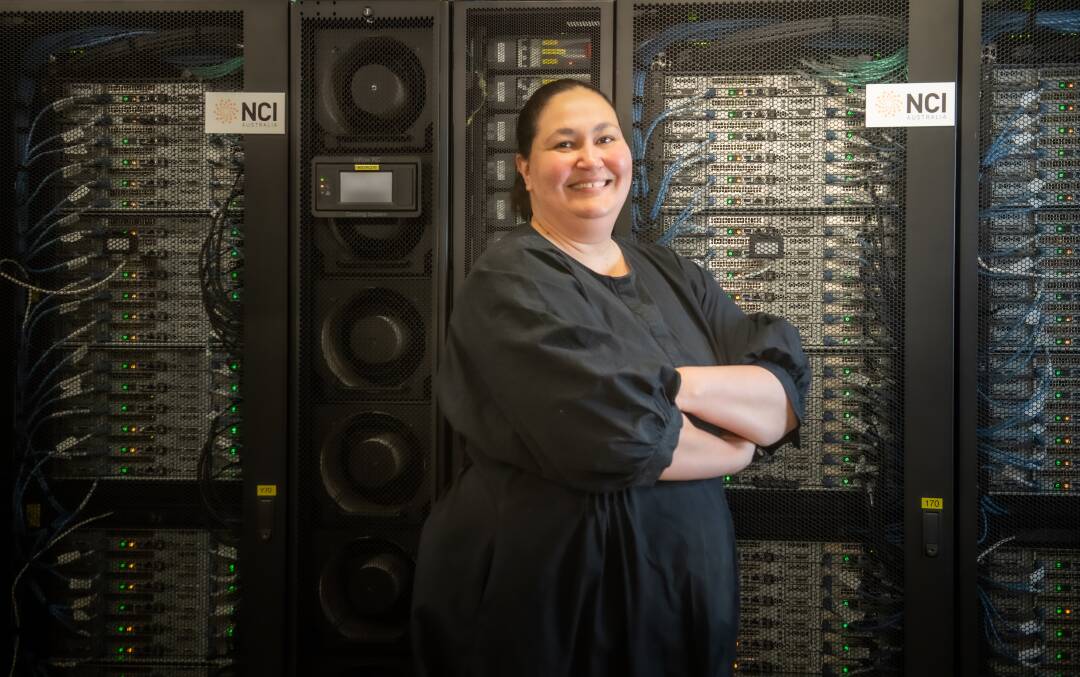
Indigenous genomics has been considered a taboo subject but unlocking the genomes of the first Australians could be the key to closing persistent health gaps.
The National Centre for Indigenous Genomics has been working for a decade to sequence the samples of about 7000 individuals that were taken with dubious levels of consent.
The resource-intensive work has been boosted through an agreement with the National Computational Infrastructure - the supercomputer based at the Australian National University.
It means the agency can spend less time and energy securing annual grants and more time engaging with communities.
National Centre for Indigenous Genomics deputy director Azure Hermes said when people were told about the samples stored at the ANU, their first reaction was usually shock and surprise.
"Then there's a bit of anger because then they start saying questions like, 'I don't remember that happening. I wonder if I gave consent? What do you know about these samples?'," she said.
Professor Bob Kirk collected the blood samples from the 1960s to 1990s at a time when the consent process was not as rigorous as today.
The centre now has the mammoth task of tracking down the individuals and relatives from Indigenous communities across Australia and finding out if they would give their permission to have their genomes analysed.
This data will be used in current and future research projects with the intention of improving health outcomes.
Mrs Hermes, who is a Gimuy Walubara Yidinji woman, said about 90 per cent of people agreed to have their samples used in research.
"We're not rich people. We don't have the houses or cars or superannuation or inheritance to leave our kids.
"And so we kind of really see these blood samples as almost being our legacy, something that we can leave our children and grandchildren and great-grandchildren in the hopes that we might have a better understanding about medical and health research.
"And then the second thing is that most people are just really sick and tired of going to funerals for friends and family that are dying from preventable illnesses and diseases."
The centre also works with communities to decide how the samples will be disposed of. In the case of the Galiwin'ku community of Elcho Island, more than 200 samples were returned in 2019 and about 400 samples were sequenced and disposed of in Canberra.
There can be some wariness and distrust when it comes to genomic research because it can be "weaponised" by the likes of Pauline Hanson to suit an agenda, Mrs Hermes said.
But it also has great potential to close research gaps and provide better health care to Indigenous communities.
Developing a reference genome and investigating the relatedness between populations has been the focus of research so far.
The centre is also working with Dr Simon Jiang, who found a gene mutation that was common among Tiwi Islanders who have high rates of kidney disease.
The centre paused its outreach activities during the pandemic in order to keep communities safe. Now the project of seeking consent is restarting with three more communities.
Mrs Hermes said it was "wonderful" to secure the initial three-year agreement for 10 million units of supercomputer time and 500 terabytes of storage per year, worth $186,000.
"You can imagine that this field of work is really expensive and the amount of information that we're generating is huge and the cost of being able to store that information is a lot," she said.
"We know that it's safe and secure, which is one of the things that we often promise our communities, that we will look after their data and that we will make it safe and secure. So being able to have a partnership like this with NCI is incredible."
We've made it a whole lot easier for you to have your say. Our new comment platform requires only one log-in to access articles and to join the discussion on The Canberra Times website. Find out how to register so you can enjoy civil, friendly and engaging discussions. See our moderation policy here.







